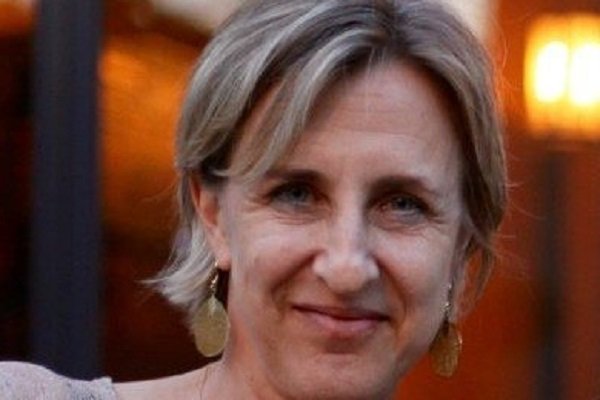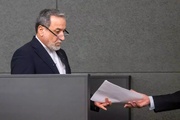She adds that “religion has never been absent from the practice of international relations, although it is the case that IR theory ignored or refused to deal with the subject for several decades.”
Professor Hurd also says that theorizing Religion in International Relations “is not only feasible but essential.”
Following is the full text of the interview:
When did the religious issues has been a matter of great in Theorizing of International Relations?
My first work was among the first to open up new conceptual and political spaces in which to think and talk about religion in the study of International Relations. Religion was never excluded from international affairs but has assumed different forms and occupied difference spaces in different regimes of governance, some of which are described as secular. This was the subject of my first book on “The Politics of Secularism in International Relations” (Princeton University Press, 2008).
Religion is not an isolatable entity and we cannot treat it as such. Taking this as a point of departure forces us into a different field of play, epistemologically and politically. It becomes clear that any attempt to single out religion as a platform from which to develop law and public policy ends up privileging some religions over others. Looking ahead, we need to embed the study of religion deeply in a series of social, institutional, and interpretive fields. This requires disaggregating and complicating the category. It requires considering what the world looks life after we move beyond the ideology of separation and secularization, and also beyond the ideology of restoring or accommodating religion to public life. Neither is sufficient. They mirror each other, in fact.
We can see the inevitable interplay of politics and religion in the current refugee crisis, in claims for asylum in Germany. Because asylum claims coming from Pakistani Christians carry more weight in Germany, there has been an uptick in conversions to Christianity among asylum-seekers. Both politics and religion are being transformed in ways that cannot be disentangled. To attempt to separate the fields of religion and politics, or to “bring religion back in” misses the point. In the case of the asylum-seeks, those who cannot or choose not to identify as recognizably religious are simply less likely to be legally protected. These are the kinds of dynamics that we need to pay attention to. This means adjusting our conceptual frames so that we can ask better questions, and provide more sophisticated analyses of contemporary religion and politics.
Some argue that if the theory of International Relations means a constitutive and critical theory, then bringing religion into International Relations is possible, but if the theory of International Relations is an explanatory-empirical theory, the theorizing religion in International Relations is not possible and, in fact, there is not theological positivism theory in International Relations. What is your opinion?
I do not think it is useful to divide the field up using these categories. My research works on all of these fronts. My recent book “Beyond Religious Freedom: The New Global Politics of Religion” (Princeton University Press, 2017), for example, disaggregates discourse about religion into three categories: expert religion, official religion, and lived religion. The idea is to break down the monolithic category of religion, and to try to understand religious practices as they intermingle, shape, and are shaped by law, history, and politics. I am working toward a more integrative approach to religion, law, and society, in which religion is seen as always already part of history rather than standing apart from it.
The analytical framework of “Beyond Religious Freedom” illustrates this argument. I distinguish between religion as construed by those who have legal and political power (“official or state religion”); religion as construed by experts who generate knowledge about religion (“expert religion”); and religion as lived and practiced by ordinary people (“lived religion”). Expert religion is religion as defined by those who generate what is known is as policy-relevant knowledge about religion. This includes scholars, policy experts, government officials, and religious authorities. When we hear experts (religious or secular) talk about religion today, we often hear it either celebrated as a source of morality and cohesion or feared as a danger to contain. You have probably heard versions of both narratives: good religion versus bad religion. Rather than the privatization of religion, today we hear about the need for governments to support good religion and tame or disrupt bad religion all over the world. The good/bad religion narrative is a powerful form of knowledge about religion; it’s a form of expert religion. This is an interesting shift in public discourse that is worth following.
Some scholars such as “Michael Allen Gillespie” in the book “The Theological Origins of Modernity” believe that modernity was not initially against religion, and in later years, as a result of social, cultural and political conditions, it has led to secularism. So Based on this conception, religion does not conflict with modernity, so can it be said that religion does not conflict with the International Relations theory stemming from modernity?
I do not think there is one thing called “religion” or one thing called “modernity,” and so generalizations like this do not make sense to me. As I mentioned above, religion has never been absent from the practice of international relations, although it is the case that IR theory ignored or refused to deal with the subject for several decades. That has changed now, as discussed in my 2008 book mentioned above.
An example of how religion has always been with us in practice is a program I write about in “Beyond Religious Freedom”. RelHarmony was a US Agency for International Development-supported project to bring interfaith understanding and tolerance to Albania in the 1990s. The aim was to create the social, political and legal conditions in which political and religious ‘extremism,’ as defined by the US and the EU, would wither on the vine. The reality was of course more complex. What does it entail politically and religiously to “engage with top religious leadership?” When officials court those leaders, as they did in this program, the heads of nontraditional religions and unorthodox versions of protected religions are ignored. RelHarmony’s final report acknowledged this, noting that "religious leaders from Albania's traditional religious groups were supportive of interfaith initiatives, but that their views differed on the question of including members of non-traditional religious groups in RelHarmony activities.”
Religious-outreach programs operate on the questionable assumption that all religions can be treated equally. This masks the power relations involved. The religions of the majority, of the orthodox, of the ruling class, of allies of the United States, the United Nations, corporate interests or some other government or power broker inevitably carry more political weight than others. Less-favored groups are likely to be classified as cults or extremists. The former US Ambassador for International Religious Freedom, Suzan Johnson Cook spoke about this during workshop attended by US religious leaders and scholars: "There are certain areas where the US government has muscle," she said. Her chief example: the promotion of foreign religious leaders. How do we square this with our domestic tradition of disestablishment? This is one of the questions I am thinking about now.
Some argue that the current International Relations theory cannot explain some of the current phenomena of international relations and we need a religious theory of International Relations, especially with regard to religious issues. What is your opinion? In general, theorizing Religion in International Relations is feasible?
It is not only feasible but essential. I study how “religion” has a category and set of practices is interpreted to shape projects of law and governance. This has both theoretical and empirical implications—I do not separate the two.
If theorizing Religion in International Relations is possible, can this religious theory in International Relations explain all the unresolved issues and problems?
Certainly not all of them! But we can offer insight into some perduring dilemmas involving the politics of difference in contemporary public life. Let me give two examples.
The first is the legal protection of groups as “religious minorities.” I am interested in the forms of subjectivity, both individual and collective, that are cultivated and reinforced through the law when groups are defined and legally protected as “religious” minorities. The Alevis of Turkey are a fascinating case. They hover at the boundaries of modern distinctions between secular/religious/superstitious as they interact with modern state-building projects. The Alevis as a community and a category were formally constituted as part of the Turkish nation-building project. In taking up their case I sought to understand how ordinary social and religious belonging gets translated, and transformed, through the process of becoming legalized. What happens when we designate groups legally as religious minorities? I argue that adopting religion as a category to draw together individuals and communities as corporate bodies that are seen as in need of legal protection to achieve freedom is a risky business. We need to think twice before rushing to create these legal regimes. I develop this argument through a study of two legal constructions of Alevism, by the Turkish state and the European Court of Human Rights. They are premised on differing assumptions about Alevism, but both erase the indeterminacy surrounding Alevism as a lived tradition. They also bolster the role of the state in defining and overseeing Turkish religiosities. My intention in that chapter is to encourage readers to see the inevitability of legal protections for religious minorities in a new light, and to seek out and affirm other possibilities and forms of identity and solidarity.
A second example is the category of “religious violence.” There is a sense that if we talk about religion and politics we are talking either about religious freedom or about religious violence, or both. I am not convinced that these constructs help us understand what is actually going on in the world around us. One problem with talk of religious violence is that when we declare religion or religious difference to be the cause of an act of violence we obscure or submerge a much bigger picture. A lack of religious toleration shoulders the blame for an incident or episode. The explanation for violence becomes: they’re doing this because they are religious and they don’t like other religions. They are religiously intolerant, backward, anti-modern. The minute we adopt this storyline, however, we make ourselves incapable of seeing the broader, often institutionalized, often state-sponsored, often racialized, and always politicized contexts in which violence and discrimination actually occur. Religion is one part of that story. But we need a broader lens to see how religionized, racialized, and nationalist politics become intertwined. An example from my recent book is the current violence against the Rohingya people of Myanmar. I tell a different story about their situation that de-dramatizes the religious element, without ignoring it, while drawing our attention to other factors driving the violence against them. We need to tell more stories like this one.
Interview by: Javad Heirannia


























Your Comment